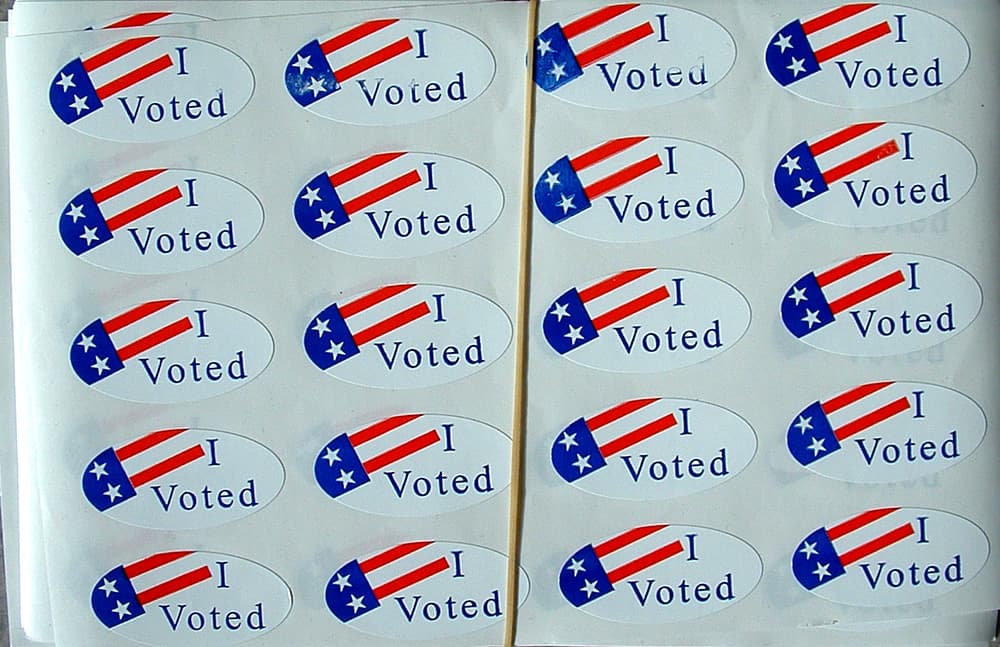
There are nine statewide measures on your Colorado ballot dealing with everything from slavery to the presidential primary and a number of local issues as well. Here's a guide to your 2016 decisions. Find a more detailed discussion of each measure below.
Statewide issues:
- Amendment T bans slavery. The Colorado constitution currently allows involuntary servitude for people convicted of a crime. This amendment would remove that exemption and prohibit all slavery for everyone.
- Amendment U would give a tax break to people who make money — but not too much money — from leasing government land. Those people have a "possessory interest" in real property, and this amendment would exempt them from taxes if the interest is less than $6,000. The property tax exemption would go into effect in 2018, and the amount would be adjusted for inflation moving forward.
- Amendment 69, often referred to as ColoradoCare. This amendment would create a 10 percent payroll tax, with one third paid by the employee and the rest paid by the employer, to raise $25 billion a year for a single-payer health care system. The main concerns are cost — some analyses predict it won't raise enough money to pay for itself — and the power this would give the board of trustees that administers the plan.
- Amendment 70 would raise the minimum wage in Colorado to $12 an hour over a period of four years. Proponents say it's necessary to help wages keep pace with inflation and will help the economy by give poor people more disposable income. Opponents say it will hurt businesses and could lead to job losses.
- Amendment 71 would make it harder to amend the Colorado constitution. Backers of "Raise the Bar" think we have too many constitutional amendments on the ballot dealing with too many issues that should be simple statute. If this passes, it would take 55 percent and not a simple majority to approve a constitutional amendment — unless it was a vote to repeal a part of the constitution. Constitutional amendments would also need signatures from at least 2 percent of the registered electors in each state Senate district, more difficult than the current standard, which is 5 percent of the people who voted for the office of Secretary of State in the last election. Opponents say this allows just one senate district to essentially veto something with broad support and makes it far too hard to amend the constitution.
- Amendment 72 would increase the state cigarette tax by $1.75 a pack from the current 84 cents a pack. This amounts to tripling the cigarette tax. It would also impose a 22 percent tax on other tobacco products. The money — up to $315.7 million a year — would go toward smoking prevention and cessation programs and other health care programs.
- Proposition 106 would make Colorado the sixth state where physicians can prescribe lethal doses of barbiturates to people with a terminal illness.
- Proposition 107 would create a presidential primary to replace the party-run caucuses and allow unaffiliated voters to vote in that primary.
- Proposition 108 would allow unaffiliated voters to vote in primary elections while the parties would still control, through caucuses and conventions, the process of selecting candidates for the primary.
Regional measures:
- Ballot Issue 4B, on the ballot in the seven metro counties of Adams, Arapahoe, Boulder, Broomfield, Denver, Douglas and Jefferson, extends the 0.1 percent sales tax that supports cultural institutions until 2030. The district distributed more than $54 million last year, with five large institutions being the greatest beneficiaries of the tax: the Denver Museum of Nature and Science, the Denver Zoo, the Denver Art Museum, the Denver Botanic Gardens and the Denver Center for the Performing Arts. How the money is distributed was a point of contention last year, and the district has slightly revised its formula for allocations so that small- and medium-sized arts organizations will get more money going forward. The tax doesn't expire until 2018, so if this doesn't pass, it could come back to voters next year.
City of Denver measures:
- Referred Question 2A allows the city to retain additional taxes collected under the sales tax that funds the Denver Preschool Program.
- Referred Question 2B incorporates the Office of the Independent Monitor into the city charter so that a future mayor or city council could not get rid of it.
- Initiative 300 creates a pilot program to allow public consumption of marijuana. Businesses could apply for a permit for a designated consumption area in a process similar to seeking a liquor license. Proponents say people who can't consume at home -- whether they're tourists or renters -- need legal places to do so, while opponents are concerned about impacts to neighborhoods.
Denied:
These measures did not collect enough valid signatures to make the ballot, according to a state review.
- Initiative 75 would allow local governments to restrict and even ban fracking within their jurisdictions. The question of whether local or state government has the ultimate authority to regulate oil and gas extraction has been a highly contested issue in recent years, with the courts siding with the state. This amendment would resolve that dispute in favor of local jurisdictions.
- Initiative 78 would require that any oil and gas operation be at least 2,500 feet away from an occupied structure. That's nearly half a mile and would put a lot of land off-limits to fracking. Again, industry groups are strongly opposed.
- Opponents of these anti-fracking measures have redirected their money to support Raise the Bar, which would make it harder to amend the constitution in the future.
Updated as of October 24, 2016.











